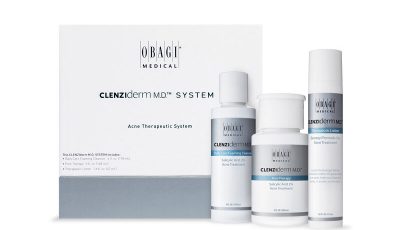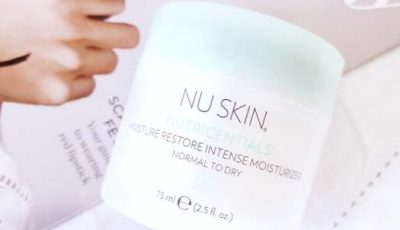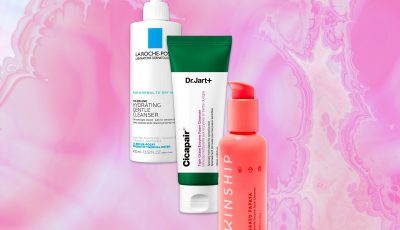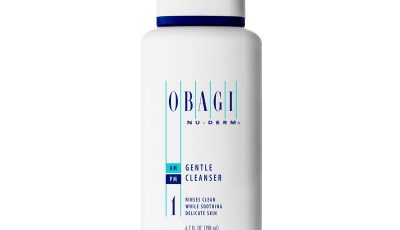Hyaluronic acid is used in a variety of cosmetic products to improve the look and feel of your skin. It can be found in supplement, eye drop, and serum form, and is often used as a topical treatment for a number of conditions. It is also known to help rebuild damaged tissues and reverse the effects of collagen/cartilage depletion.
Skin hydration
Hyaluronic acid is a group of sugar molecules that are naturally present in our bodies. These molecules cushion the skin and help retain moisture. Without it, our skin would appear rough, dry and flaky. But hyaluronic acid can help to replenish this lost substance.
[easyazon_link identifier=”B07GVCVYB9″ locale=”US” tag=”novolink20-20″]L’Oreal Paris 1.5% Pure Hyaluronic Acid Serum for Face with Vitamin C from Revitalift Derm Intensives for Dewy Looking Skin, Hydrate, Moisturize, Plump Skin, Reduce Wrinkles, Anti Aging Serum, 1 Oz[/easyazon_link]
Hyaluronic acid can be found in many different products. Some of them are derived from plant sources while others are obtained from animal sources. Plant-based forms of Hyaluronic Acid are extracted from bacteria that produce the substance naturally. However, some plant-based forms may contain wheat, so check carefully to ensure that the product is free of wheat. Animal-based Hyaluronic acid is obtained from the combs of roosters.
Hyaluronic acid attracts water from the dermis and moves it to the outer layer of skin. It also plays a role in cell metabolism, regeneration, and healing. However, its levels naturally decrease as we age. Therefore, it is often touted as an anti-aging ingredient, but its role is more focused on skin hydration.
Skin elasticity
Hyaluronic acid is a substance that can help reduce wrinkles and improve skin elasticity. It helps maintain the moisture barrier of the skin and can help protect it from environmental pollutants. Hyaluronic acid is present in 50% of the human body. The lack of this substance in the skin can lead to premature aging, causing the appearance of wrinkles and fine lines.
Hyaluronic acid is an important ingredient in skin care products because it can improve the skin’s elasticity. Because it locks in moisture, it helps to protect the skin from dehydration. Our skin is often stripped of moisture through dry weather or from indoor heaters, which can result in dry, flaky skin. The dehydrated skin can also be more fragile and prone to cracking and irritation. It can also become susceptible to skin infections.
Hyaluronic acid can be applied in the form of creams, lotions, and serums. When used topically, it can improve skin elasticity by as much as 55% and increase the skin’s hydration levels by as much as 96%. Higher elasticity means a better moisture barrier and a faster, less painful skin repair process.
Speed of wound healing
Hyaluronic acid is an excellent local therapeutic agent for wound healing. Studies have shown that it speeds wound healing in a variety of conditions and in many patients. One 2012 systemic review of clinical trials using hyaluronic acid and its derivatives found that hyaluronic acid had superior results compared with placebo. In one study, which included 11 patients with dermatome wounds, hyaluronic acid was found to accelerate wound healing more quickly than placebo.
The healing process in cutaneous lesions is a complex process consisting of multiple sequential events. Injured tissue undergoes several phases, including inflammation, granulation, re-epithelialization, and rapid degradation. The extracellular matrix, or ECM, plays a critical role in this process and is a major component of the wound microenvironment. Hyaluronic acid is one of the basic ECM components and is particularly useful for the treatment of deep burns.
When a wound is injured, small fragments of hyaluronic acid accumulate at the site of the injury. This triggers the immune system, which regulates the tissue’s integrity. However, in chronic wounds, the immune system keeps the wound from healing, resulting in a constant excessive inflammatory response.
Side effects of Hyaluronic acid
Hyaluronic acid may have side effects for patients who are taking certain medications. The effects may be mild or severe, and it may cause allergic reactions in some people. It should not be taken by people with heart or kidney problems. It should also be avoided by people under 21 years of age. The drug can also interact with some disinfectants, such as benzalkonium chloride.
The most common side effect from hyaluronic acid injections is local injection site irritation, resulting in pain, swelling, and redness at the injection site. This side effect is often self-limiting and can be treated with over-the-counter anti-inflammatory drugs. The risk of developing an intra-articular infection is minimal. In clinical trials, there have been no reported cases of infection, and it is extremely rare in clinical practice. However, some patients have reported anaphylactic reactions and systemic adverse effects.
Hyaluronic acid injections are most commonly used for relieving joint pain in people who suffer from arthritis. The substance is also known to increase the activity of osteoblasts, the cells responsible for building new bone tissue. This is especially important for women who are at a high risk of developing osteoporosis. Hyaluronic acid is available in various forms, including tablets and liquids.






